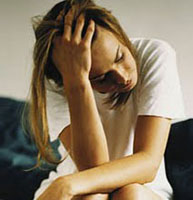Recognizing Methadone Withdrawal Symptoms
Methadone is a powerful opiate that is commonly used to counteract the use of heroin and other opiates. Prescribed, and taken under doctor supervision, methadone can provide powerful relief to those suffering from opiate dependence—but when it is taken in manners other than prescribed, or when it is taken for a prolonged time and then abruptly stopped, methadone withdrawal symptoms can quickly set in.

Withdrawal from methadone can be very uncomfortable, but if you slowly taper your dose you can manage it effectively.
Early recognition of the signs of methadone withdrawal is key to getting prompt help and to overcome the symptoms in a safe, effective manner. According to Medline Plus, “opiate withdrawal refers to the wide range of symptoms that occur after stopping or dramatically reducing opiate drugs after heavy and prolonged use (several weeks or more).
Common Methadone Withdrawal Symptoms
People who abruptly quit taking methadone or who attempt to greatly reduce their dose without tapering the drug off are at an increased risk of various withdrawal symptoms. The symptoms of withdrawal can range from mild to moderate depending on the level of drug use, the individual health of the user and various other factors. According to Medline Plus, the most common symptoms of withdrawal from methadone include:
- Anxiety
- Nausea and vomiting
- Diarrhea
- Upset stomach
- Flu-like symptoms
- Insomnia
- Yawning
- Agitation
- Irritability
Most of the time, methadone withdrawal symptoms are not dangerous or deadly—though you may feel like you’re deathly ill for a period of time. The symptoms of withdrawal will usually only last about seven days or so, during which symptoms will peak and then gradually dissipate. If you can manage to go without opiates of any kind for that short duration of time, and you remind yourself that you are not going to die and that you will make it through, methadone withdrawal will quickly become a thing of the past.
Treatment for Withdrawal
Fortunately, there are a number of treatment options available to those who are suffering from methadone withdrawal symptoms. Medications can help to suppress the symptoms of withdrawal and prevent cravings. Holistic care can reduce the symptoms of withdrawal and promote comfort for the user. Exercise and nutritious meals can further promote detox and speed the process of withdrawal so that you feel better in a shorter time period. Together, combining various methods of treatment to your advantage, you’ll find that just as quickly as you learned how to recognize the symptoms of withdrawal, you can learn to overcome them and be drug free.